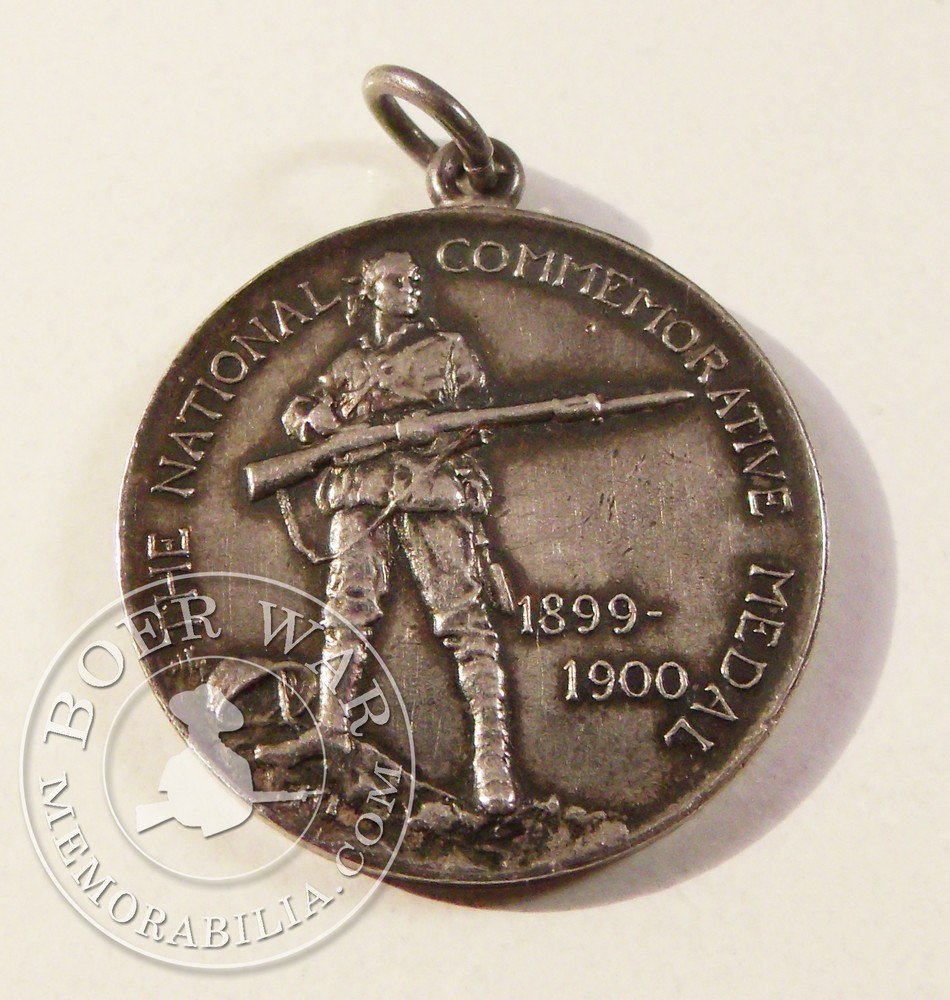|
View the embedded image gallery online at:
https://boerwarmemorabilia.com/index.php/memorabilia/medallions/item/162-boer-war-medallion#sigProId0e0e1dd170 |
Item Ref# MS7438
The Absent Minded Beggar - Boer War
Obverse: Full figure of a British soldier with rifle at the ready standing on rocky ground, head bandaged and helmet at his feet. To the right: “1899- / 1900”. |

Gen Christiaan De Wet - A Mastermind
General De Wet’s attempt to invade the Cape Colony in November 1900 was thwarted by an Orange River that was in flood. On 10 February 1901 he succeeded in crossing the Orange River into the Cape Colony, but was relentlessly pursued in what became known as the “third” or “great De Wet hunt”.
Driven against a full Brak River, he was forced to turn back, but owing to brilliant deceptive movements on his part, he was able to evade his 14 000 pursuers, and by 28 February he was back in the Orange free State, having covered some 1 300 km in 43 days.
He divided the Free State into seven military districts. On Christmas Day 1901, De Wet achieved one of his most audacious guerrilla successes by surprising and defeating a British force at Groenkop (near the present-day town of Kestell). The Boers stormed a British camp on the hill and overwhelmed the British force.
The British lost at least 57 killed, 84 wounded and more than 200 (including many wounded) taken prisoner, as well as large quantities of arms, ammunition and stores. De Wet’s losses amounted to 14 killed and 30 wounded.
Source: Boer Guerrilla and British Counterguerrilla Operations
| Scripture |
|
“Take therefore no thought for the morrow: for the morrow shall take thought for the things of itself. Sufficient unto the day is the evil thereof.” Matthew 6:34 |

